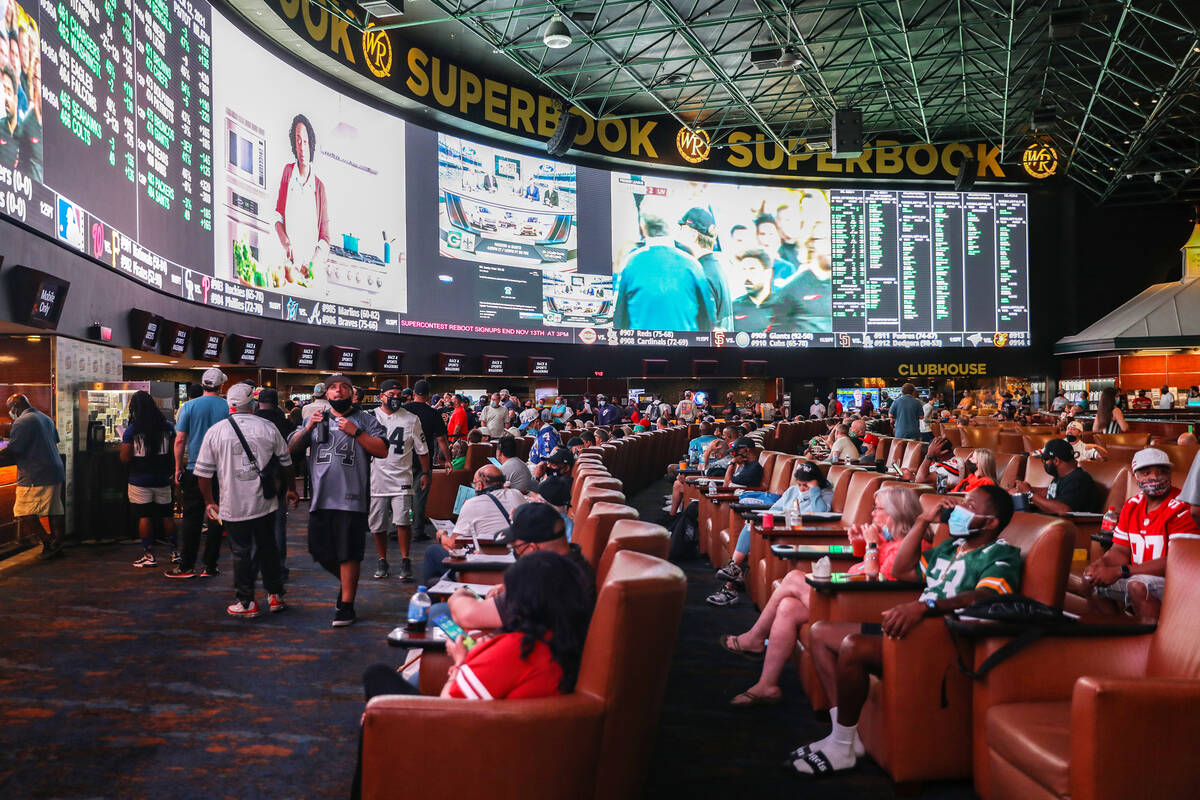Do Nevada officials support federal sports betting regulations?
A bicameral effort to impose federal guidelines on the country’s rapidly expanding legal sports gambling market is not well received by Nevada officials.
Both of Nevada’s U.S. senators and the congressperson who represents the Las Vegas Strip expressed resistance to the Supporting Affordability and Fairness with Every Bet, or the SAFE Bet Act, which was introduced last week by U.S. Rep. Paul Tonko, D-New York, and U.S. Sen. Richard Blumenthal, D-Connecticut.
The SAFE Bet Act would enact federal regulations for advertising, individual betting activity and the use of artificial intelligence in the legal sports gambling industry. The bill’s sponsors say it is a small step toward addressing public health implications associated with widespread sports betting legalization.
“This relationship between the gambling industry and sports has reached intolerably dangerous levels, and it’s well past time for Congress to just step up and make a difference,” Tonko said during a Sept. 12 press conference introducing the legislation.
U.S. Rep. Dina Titus, D-Nevada, whose district includes the major casino resorts on the Las Vegas Strip, immediately pushed back.
“The SAFE Bet Act reinforces the outdated and unwarranted prejudice against gaming, a legal industry which provides good-paying jobs and tax dollars to communities across the United States,” Titus said in a statement issued after Tonko and Blumenthal’s joint press conference in Washington, D.C. last week. “While the SAFE Bet Act is perhaps well-intentioned, pre-empting state gaming regulators by outlawing most forms of advertising and restricting the types and methods by which customers can place bets is a misguided approach.”
‘Nevada already has strict sports betting regulations’
Nevada’s two Democratic senators also issued statements opposing implementing federal regulations on legal sports wagering.
“Nevada has successfully regulated the gaming industry in our state for decades and provided oversight of sports betting for the last six years,” a spokesperson for U.S. Sen. Jacky Rosen told the Review-Journal. “This industry supports hundreds of thousands of good-paying jobs, and Senator Rosen has concerns with any federal legislation that could hurt our workforce and local economy.”
Lauren Wodarski, a spokesperson for U.S. Sen. Catherine Cortez Masto, said “Nevada already has strict sports betting regulations to protect consumers.”
Wodarski said Cortez Masto is concerned the SAFE Bet ACT “could negatively impact Nevada’s legal sportsbook industry, which supports thousands of jobs across the state, without addressing the illegal market.”
Sports gambling has been legal in Nevada casinos since 1949. In 2018, the U.S. Supreme Court struck down the Professional and Amateur Sports Protection Act, paving the way for states other than Nevada to offer single-game sports wagering.
According to the American Gaming Association, sports betting is legal in 38 states and the District of Columbia with 31 of those jurisdictions offering mobile/online sports gambling. The AGA says Americans gambled more than $121 billion on sports last year, generating over $11 billion in revenue for sportsbook operators.
Tonko’s home state of New York is the largest sports gambling market in the country
Tonko says the bill will make legal sports gambling safer
Blumenthal and Tonko said they do not want to ban sports gambling. The legislation, they claim, will make legal sports gambling a safer recreational hobby.
“State regulation is faint-hearted and half-baked,” Blumenthal said at the SAFE Bet Act’s introductory press conference. “That’s why we need a national standard — not to ban gambling — but simply to take back control over an industry that is out of bounds.”
The SAFE Bet Act would, among other provisions, prohibit sports gambling advertising between 8 and 10 a.m. local time and during live game broadcasts. The bill would prohibit sportsbook operators from using language that entices gambling, such as “bonus bets” or “no sweat.”
The SAFE Bet Act also proposes regulations on individual betting habits, such as prohibiting more than five mobile deposits in a 24-hour period or using credit cards to fund an account. The bill would also permit operators to conduct “affordability checks” on customers before accepting wagers over certain amounts within set timeframes.
The SAFE Bet is not Tonko’s first attempt at installing federal safeguards on sports betting. In 2023, he introduced the Betting on Our Future Act, which contained similar provisions.
David Danzis can be contacted at ddanzis@reviewjournal.com or (702) 383-0378. Follow AC2LV_Danzis on X.

















